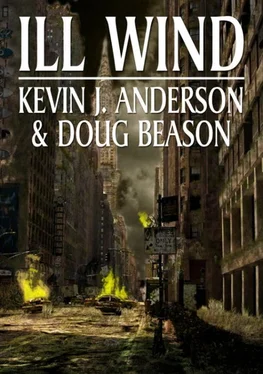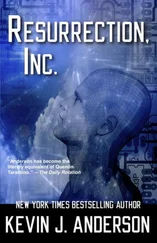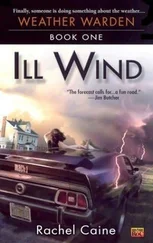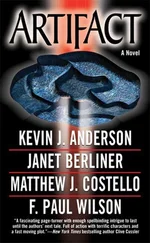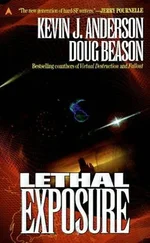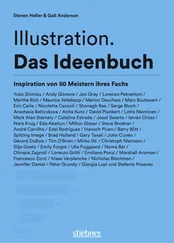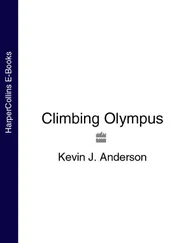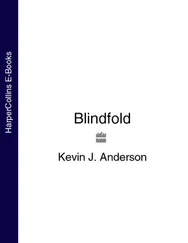Connor turned when she came outside. “Not much of this looks familiar to me. My parents moved here after I left home, and I… I haven’t been back to visit too often.”
She raised her eyebrows. “No kidding.” She handed him the food. “Here.”
His eyes widened at the beer. “Thanks!”
As they spoke she could not say why she found him intriguing, but Connor Brooks gave the impression of being a survivor. He had no connection to her old life. She began to calculate whether it might be worthwhile having him around.
He seemed to read her thoughts. “Do you think I could impose a little more? I’d really like a shower. It’s been a rough couple of days, and I feel like I’ve been run over by a truck.”
She thought it over; the suggestion sounded so preposterous that it made her pause. Funny what a difference a few hours can make. The old Heather would have been flustered, even terrified—and that was enough to make her change her mind. “You do smell like you could use a bit of freshening up. The water will probably be cold, but I’ve got a hose out back you can use.”
“Out… back?”
“Consider yourself lucky,” Heather smiled. “Times are changing. Besides, I’ll bring you a towel.”
Alex Kramer’s two horses were excited to be taken out. Todd ran his calloused right palm along the hot, soft neck of Ren, the palomino, patting gently; he stepped into the stirrup, hauling his leg over the horse’s back.
He reached back to gather the reins from Stimpy’s bridle, looping them around the saddle horn. The corral gate stood open, and Todd squeezed Ren with his knees, nudging the horse toward the open road. “Let’s head ‘em out!” he said.
Todd reveled in the warm redolence of the horses. The thick scent brought back fond memories of his younger days, as did the hollow clatter of hooves on the hard road surface. It had been in a long time since he’d taken a horse and slept under the Wyoming stars. Of course, it would be different riding through downtown San Francisco, and a heck of a lot more dangerous. He kept Alex’s old Smith & Wesson loaded and at his side.
Whispering to the horses, Todd guided them alongside the paved road. The hills were quiet and still. It was time to move on, to stop waiting for the world to fix itself. Besides, he had to go rescue Iris, whether she wanted it or not. Staying in the city would be plain stupid. If the downtown areas weren’t already burning, the mobs would ge out of hand before long.
Todd kept his eyes forward, Alex’s abandoned house at his back. On the winding road, he passed mailboxes, driveways, but the houses sat quiet, deceptively peaceful. Blue-gray wood smoke curled from one chimney. He came across a man walking his German shepherd, as if it were a normal afternoon; Todd and the man nodded to each other, and the dog barked, but the horses continued down the road.
It seemed unreal to him. Elsewhere in the world, planes were crashing, buildings falling apart, communications severed. The last he had heard, the president was stuck out of the country. The C&W radio station had mentioned something about the Vice President being killed in an elevator accident, but they had not been able to confirm the rumors… and then the radio station blinked out, replaced by static. Todd couldn’t get any other stations on the radio either. When he pried it open, he discovered the plastic circuit board had melted.
Only a week ago he’d been flying in the Oilstar helicopter, spraying the Prometheus microbe. At the time, Todd had considered the Zoroaster spill a terrible disaster. Now his entire definition of disaster had changed.
After an hour he reached U.S. highway 101, which stretched down the Marin peninsula, across the Golden Gate Bridge to San Francisco and then the south bay. Todd took the two horses at a rapid trot down the middle lane. The hard road would not be good for the horses’ hooves, and he moved over to the grassy median whenever he had a chance. He wondered if the asphalt itself would turn soft and spongy once the petroplague got hungry. The microbe’s appetite for plastics seemed random and unpredictable.
He felt idiotically out of place on horseback in the middle of a six-lane highway that should have been filled with vehicles zooming by at 70 miles an hour. He felt like a ranger in the wilderness.
Groups of scavengers moved among the dead cars littering the highway, smashing into locked cars or just pushing windshields through the soft insulation holding the glass in place. One tall man without a shirt tucked a set of hubcaps between his elbow and his ribs, leaving a serrated smudge of grease and dirt along his side. A middle-aged woman in a red canvas jacket carried a paper grocery bag stuffed with loose cables and metal housings of car stereo boxes. A blond-haired teenaged boy slashed out seatbelts with a long knife, draping a long tangle of them over one shoulder. Todd couldn’t imagine what the kid would want them for. As Todd approached, the boy jerked his head out of a Volvo and flashed a broad grin.
At a fast trot, the horses made good time on the empty highway. Before long, Todd reached the cavernous tunnel that cut through a ridge. The horses trotted into the tunnel, their hooves booming inside the enclosed space.
Cars had stalled there, smashed into a tangled mass. Both lanes had been cut off, and no traffic had been able to pass this way for days. The ceiling lights had gone out, but enough daylight streamed in from both ends to let him ride close to the cold tile wall. The horses moved nervously from the close shadows. The empty metal hulks made ticking sounds. Ren and Stimpy began to trot, startled by the reverberating explosions of sound made by their own hoofbeats.
Finally bursting out to the sunlight, Todd took a deep breath of the cool ocean-tainted breeze and stared ahead at the Golden Gate Bridge, and beyond that at the San Francisco skyline.
Not long ago, Todd had been below on the heaving deck of the Zoroaster, trying to offload as much of the crude as possible before the tanker plunged into the channel. There had been helicopters, news crews, boats, rubberneckers….
Now, as he guided Ren and Stimpy onto the bridge, he heard only the whistling sounds of the wind. The foghorns no longer sent forlorn tones out to warn ships. The water, far below, made hushing sounds against the support piers. In addition to the sea dampness, the air carried a sulfurous stench. Leaking crude oil from the sunken Zoroaster continued oozing to the surface, and Prometheus thrived.
Puffing and red-faced, a sweat-suited jogger ran by, intent on the sidewalk in front of his feet. Todd shook his head—people were crazy! How could anybody go through a daily routine in the middle of a crisis? He seated his cowboy hat more firmly; no matter how much the world changed, he thought, some rituals remained the same.
The bridge cables high overhead thrummed in the breeze. The lowering sun dazzled on the water far out to sea. He saw no Navy ships or freighters or fishing trawlers. A shiver went up his spine as he realized just how deeply the plague had separated the world into thousands of tiny pieces of a jigsaw puzzle.
Grim-faced backpackers headed along the walkway, moving briskly in a forced march. A gaunt man with red-rimmed eyes, gray stubble on his face, and a SURF! t-shirt, called to Todd, “Hey, you’re going the wrong way, man!”
“I know,” Todd said.
A young couple with three children—the oldest no more than eight, and crying—carried lumpy packs on their shoulders as they hiked toward the Marin peninsula, in the opposite direction Todd was going. The little four-year-old girl carried a cloth doll with yarn hair; dark indentations marked where plastic button eyes had dissolved.
Читать дальше
